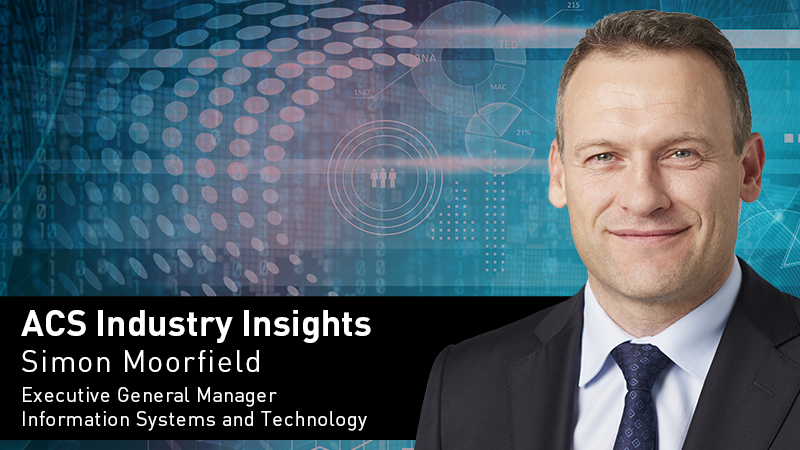ACS Industry Insights Leaders Series - Imon Moorfield

Part 9: A conversation with Simon Moorfield, Chief Information Officer at AGL Energy
ACS Industry Insights features some of the ICT industry’s most respected leaders, this series is set to explore innovation, challenges and opportunities in tech and what might be in store in ICT’S constantly evolving world.
Our ninth speaker is Simon Moorfield, Executive General Manager Information Systems and Technology at AGL. Catch Simon speaking about his 20-year career in IT across NAB, CBA and GE; plus his expert take on diversity, pivot strategy, data and how, to him, there really are no disruptors, only consumer needs.
Not a member? To view this exclusive content and more
